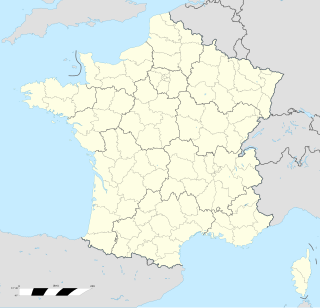This page is based on this
Wikipedia article Text is available under the
CC BY-SA 4.0 license; additional terms may apply.
Images, videos and audio are available under their respective licenses.
Surname conventions and laws vary around the world. This article gives an overview of surnames around the world.
A patronymic, or patronym, is a component of a personal name based on the given name of one's father, grandfather, or an earlier male ancestor. A component of a name based on the name of one's mother or a female ancestor is a matronymic. Each is a means of conveying lineage.
A surname, family name, or last name is the portion of a personal name that indicates a person's family. Depending on the culture, all members of a family unit may have identical surnames or there may be variations based on the cultural rules.
Personal names in German-speaking Europe consist of one or several given names and a surname .
The Vorname is usually gender-specific. A name is usually cited in the "Western order" of "given name, surname", unless it occurs in an alphabetized list of surnames, e.g. "Bach, Johann Sebastian".
In the Western tradition of surnames, there are several types of double surname. If the two names are joined with a hyphen, it may also be called a hyphenated surname.

Adolf is a given name used in German-speaking countries, Scandinavia, the Netherlands and Flanders, France, Spain, Portugal and to a lesser extent in various Central European countries. Adolphus can also appear as a surname, as in John Adolphus, the English historian. The name is a compound derived from the Old High German Athalwolf, a composition of athal, or adal, meaning "noble", and wolf. The name is cognate to the Anglo-Saxon name Æthelwulf.

Not to be confused with the earlier Battle of Heiligerlee (1536)
The term von [fɔn] is used in German language surnames either as a nobiliary particle indicating a noble patrilineality, or as a simple preposition used by commoners that means of or from.
A golden share is a nominal share which is able to outvote all other shares in certain specified circumstances, often held by a government organization, in a government company undergoing the process of privatization and transformation into a stock-company.
In the Philippines, varying naming customs are observed, whether it is given name first, family name last, a mixture of native conventions with those of neighbouring territories, etc. The most common iteration amongst Filipinos is a blend of the older Spanish system and Anglo-American conventions, where there is a distinction between the "Christian name" from "surname". The construct of having several names in the middle name convention is common to all systems, but to have multiple "first" names and only one middle and last name is a result of the blending of American and Spanish naming customs. The Tagalog language is one of the few national languages in Asia to use the Western name order while formally uses the eastern name order. Thus, the Philippine naming custom is coincidentally identical to the Spanish and Portuguese name customs and to an extent Chinese naming customs.
The German nobility and royalty were status groups which until 1919 enjoyed certain privileges relative to other people under the laws and customs in the German-speaking area.
A Portuguese name is typically composed of one or two given names, and a number of family names. The first additional names are usually the mother's family surname(s) and the father's family surname(s). For practicality, usually only the last surname is used in formal greetings.

Daniel is a masculine given name and a surname of Hebrew origin. It means, "God is my judge", and derives from two early biblical figures, primary among them Daniel from the Book of Daniel. It is a common given name for males, and is also used as a surname. It is also the basis for various derived given names and surnames.
Adolf is a given name for males. It is strongly associated with Adolf Hitler.

Blan is a commune in the Tarn department in southern France.
Tzsch is an old pentagraph used in German to write the sound. It has largely been supplanted by tsch, but is still found in surnames such as:

The Hebraization of surnames is the act of adopting a Hebrew surname in exchange for a diaspora name. For many diaspora Jews who migrated to the Land of Israel, taking a Hebrew surname was a way to erase remnants of their diaspora experience and to assimilate into a new shared identity as Mizrahi Jews and Palestinian Jews and later as Israeli Jews




